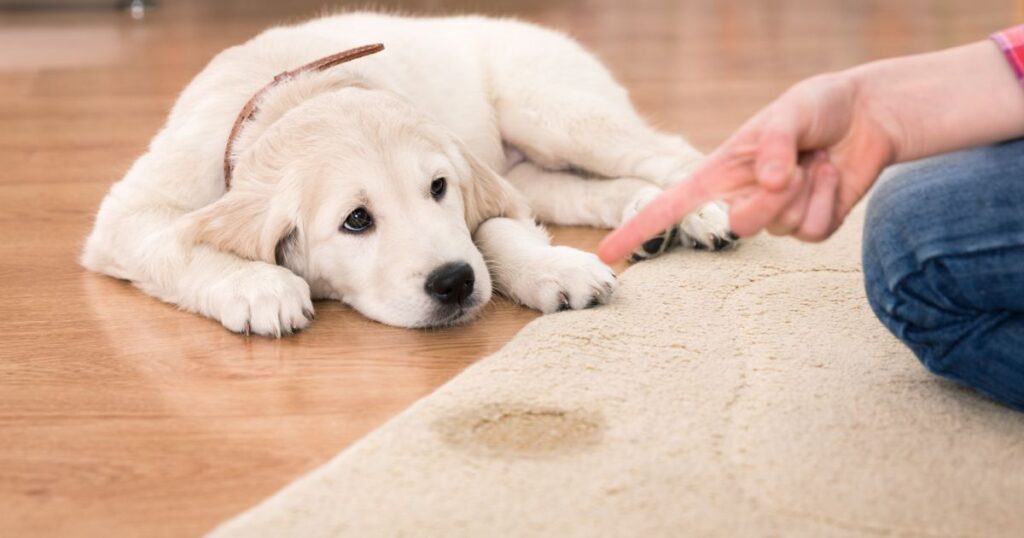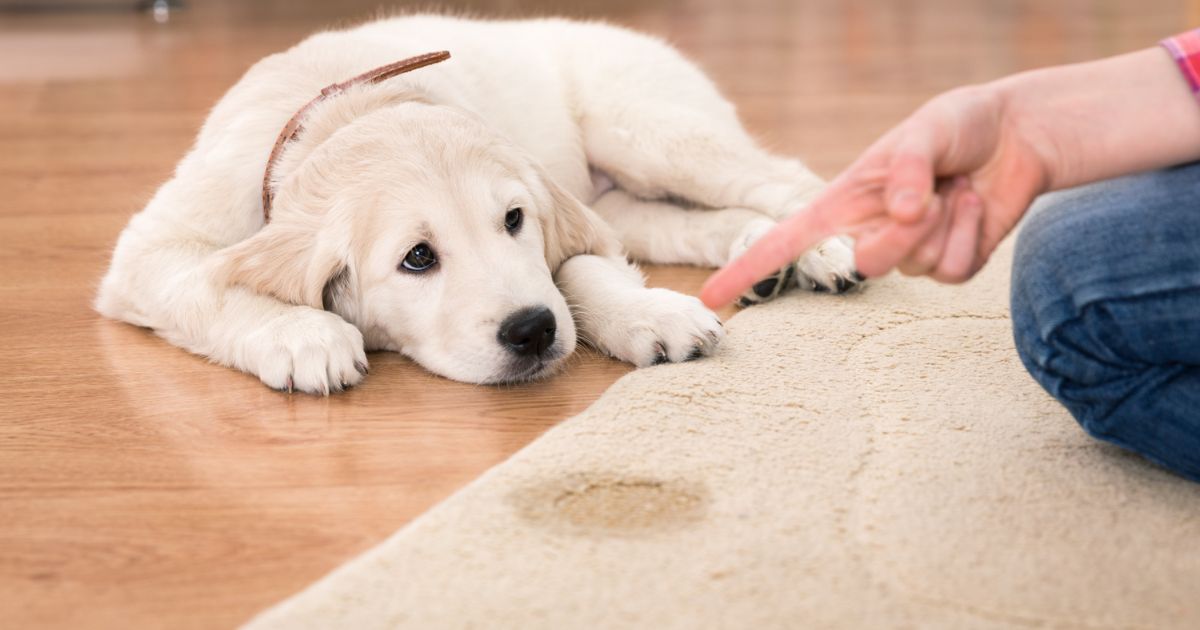Curious about your new puppy’s bathroom habits? “How Long Can Puppies Hold Their Poop?” is a question every pet parent ponders. Understanding this can make your journey as a puppy owner smoother. In this article, we delve into the age-related factors and offer essential tips for effective potty training.
Puppies are bundles of joy, but their unpredictable bathroom behavior can be a challenge. Imagine having clarity on when your puppy needs to go out. By learning how long puppies can hold their
Puppy poop-holding abilities evolve with age. Neonatal and transitional puppies have limited control, while adults can wait 8-10 hours. Individual variance, breed, and size also play a role. Successful potty training, with a consistent routine and positive reinforcement, is key to ensuring your pup develops proper bathroom habits.
Understanding Puppy Poop Holding: Factors and Age
Before delving into the specific time frames puppies can hold their poop, it’s essential to understand the various factors that influence their bowel control and how these factors change with age.
- Puppies are unable to control their bowel movements during the first few weeks of life.
- Mother dogs typically stimulate urination and defecation by licking their puppies.
Transitional Stage (2-4 weeks):
- Puppies start to gain some control over their bodily functions, but it’s still very limited.
- They may start eliminating waste away from their sleeping area.
Socialization Stage (4-12 weeks):
- Puppies gradually develop better bowel control.
- They can start learning basic potty training, although accidents are common.
Juvenile Stage (3-6 months):
- Puppies become more reliable in holding their poop.
- They can typically hold it for a few hours, but regular bathroom breaks are still needed.
Adolescent Stage (6-12 months):
- Most puppies can now hold their poop for longer periods.
- They might be able to wait up to 6-8 hours between bathroom breaks.
Adult Stage (1 year and older):
- By the time puppies reach adulthood, they should have full control over their bowel movements and can hold their poop for extended periods.
Individual Variance
It’s important to note that, while age provides a general guideline, there is significant individual variance in a puppy’s ability to hold their poop. Just like people, each dog is unique, and some may develop better control earlier than others. Factors such as breed, size, and overall health can also play a role in how long a puppy can hold their poop.
How Long Can Puppies Hold Their Poop?

Now that we’ve established the age-related factors that influence a puppy’s poop-holding ability, let’s address the question, “Can You Potty Train Ducks?” and dive into the specific time frames at different stages of a puppy’s life.
Neonatal Stage
During the neonatal stage, puppies are entirely dependent on their mother. They are unable to control their bodily functions, including pooping. Mother dogs assist by stimulating urination and defecation through licking, and the puppies do not have any voluntary control over when they eliminate waste.
Transitional Stage (2-4 weeks)
At this stage, puppies start gaining a limited ability to control their bowels. They might begin to eliminate waste away from their sleeping area, but it’s still an instinctive response rather than conscious control.
Socialization Stage (4-12 weeks)
The socialization stage is a critical period for a puppy’s development. They gradually develop better control over their bowel movements. However, accidents are still common, and puppies are prone to having the occasional “accident” inside the house.
- 4-8 weeks: Puppies in this age range may need to poop every 2-4 hours. It’s essential to provide regular bathroom breaks and establish a consistent potty training routine.
- 8-12 weeks: As puppies continue to develop, they can typically hold their poop for slightly longer, but it’s generally advisable to give them a bathroom break every 3-4 hours.
Juvenile Stage (3-6 months)
During the juvenile stage, puppies become more reliable in holding their poop, and they can wait longer between bathroom breaks.
- 3-4 months: Most puppies in this age range can hold their poop for about 4-6 hours.
- 5-6 months: As they approach 6 months, many puppies can wait 6-8 hours between bathroom breaks.
Adolescent Stage (6-12 months)
By the time puppies reach adolescence, they have even better control over their bowel movements.
- 6-9 months: Puppies in this age range can often hold their poop for 6-8 hours or more.
- 10-12 months: Many puppies can wait up to 8 hours between bathroom breaks.
Adult Stage (1 year and older)
Once a puppy reaches adulthood, they should have full control over their bowel movements and can hold their poop for extended periods.
- Adult dogs: Most adult dogs can comfortably wait 8-10 hours or longer between bathroom breaks.
It’s important to remember that the timeframes mentioned above are general guidelines and that individual puppies may vary. Additionally, puppies are more likely to need to poop shortly after eating, waking up, or engaging in physical activity.
Tips for Successful Potty Training
While understanding a puppy’s ability to hold their poop at different ages is essential, it’s equally crucial to have a successful potty training plan in place to help your pup develop proper bathroom habits. Here are some valuable tips for effective potty training:
Establish a Routine
Creating a consistent schedule for bathroom breaks is crucial. Take your puppy outside at specific times each day, such as after waking up, after meals, and before bedtime. This routine helps your pup learn when it’s time to go potty.
Use Positive Reinforcement
When your puppy eliminates waste outside, praise and reward them with treats or affection. Positive reinforcement reinforces the desired behavior and encourages your puppy to continue going outside.
Supervise Closely
Keep a close eye on your puppy, especially during the early stages of potty training. If you notice any signs that they need to go, such as sniffing or circling, take them outside immediately.
Be Patient
Potty training can take time, and accidents are bound to happen. Stay patient and avoid scolding your puppy for accidents. Negative reactions can create anxiety and hinder the training process.
Crate Training
Crate training can be a helpful tool in potty training. Dogs are naturally averse to soiling their sleeping area, so a properly sized crate can help your puppy learn to “hold it” until you take them outside.
Clean Accidents Thoroughly
If accidents occur inside the house, clean them up promptly and thoroughly to remove any lingering odor that might attract your puppy back to the same spot.
Monitor Water and Food Intake
Controlling when and how much your puppy eats and drinks can help you predict when they’ll need to go potty. This can be particularly useful in the early stages of potty training.
Conclusion
In conclusion, the ability of puppies to hold their poop varies depending on their age, with neonatal and transitional puppies having little to no control and adult dogs having full control. Understanding these age-related factors is crucial for puppy owners to provide appropriate bathroom breaks. However, it’s important to remember that individual variance plays a significant role in a puppy’s ability to hold their poop.
Successful potty training is a critical aspect of helping your puppy develop proper bathroom habits. By establishing a routine, using positive reinforcement, closely supervising your puppy, and being patient, you can guide your furry friend toward becoming a well-trained and housebroken pet.
So, if you’re wondering how long puppies can hold their poop, the answer is: it depends on their age and individual characteristics. But with the right training and care, your puppy will grow into a well-mannered and potty-trained adult dog, providing you with years of joy and companionship.
FAQs
How long can neonatal puppies hold their poop?
Neonatal puppies cannot control their bowel movements and rely on their mother for assistance.
What’s the poop-holding capacity of adult dogs?
Adult dogs can typically hold their poop for 8-10 hours or longer.
Can potty training improve a puppy’s ability to hold their poop?
Yes, potty training helps puppies develop better control and establish proper bathroom habits.










